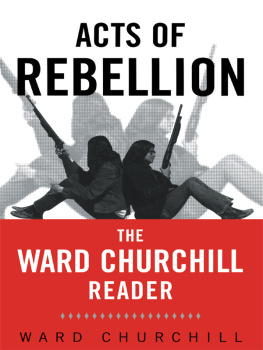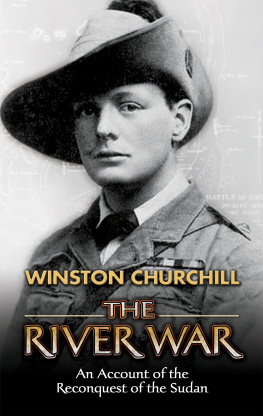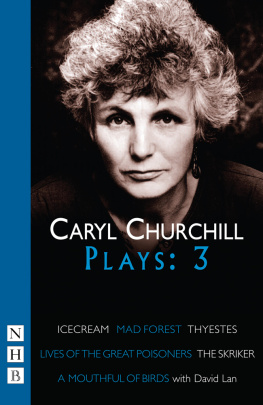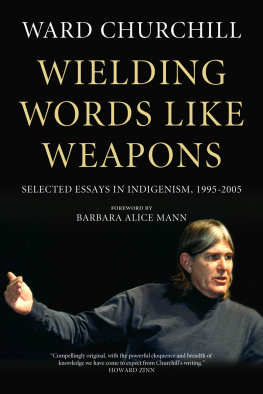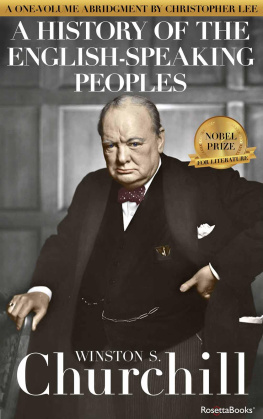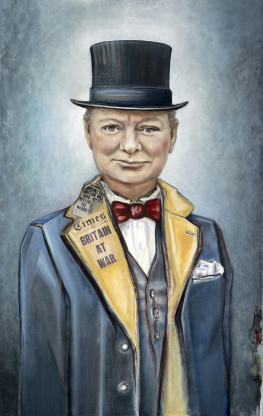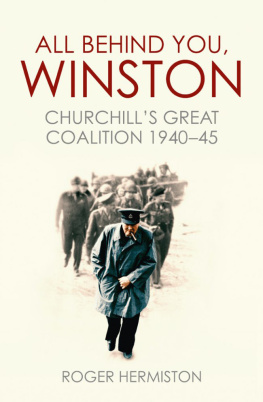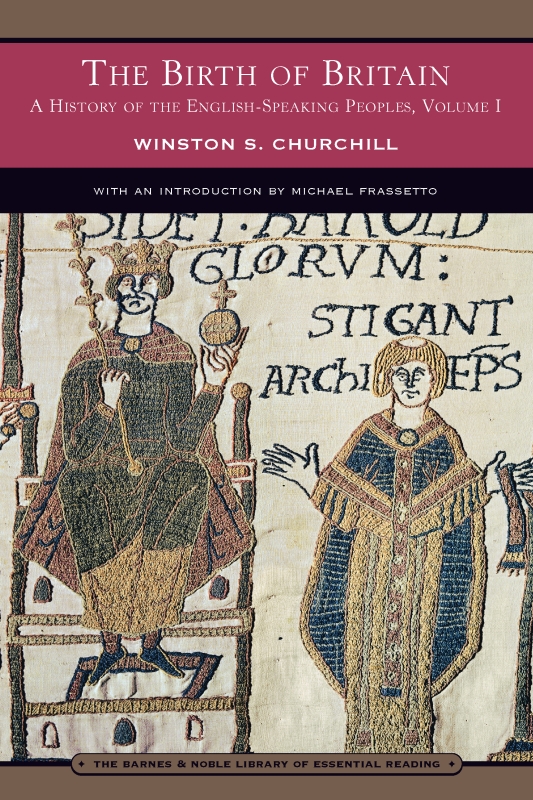
Table of Contents
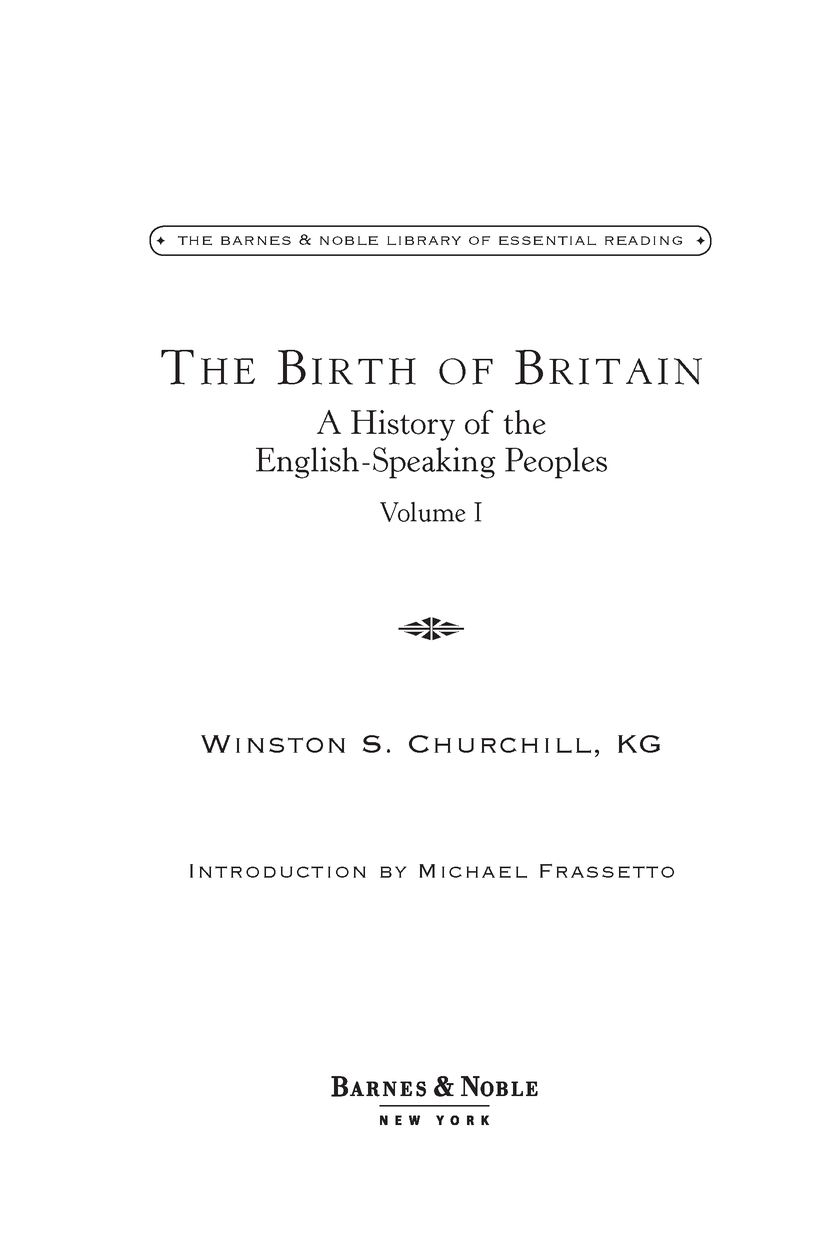
ACKNOWLEDGMENTS
I DESIRE TO RECORD MY THANKS TO MR. F. W. DEAKIN AND MR. G. M. Young for their assistance before the Second World War in the preparation of this work, to Mr. Alan Hodge, to Mr. A. R. Myers of Liverpool University, who has scrutinised the text in the light of subsequent advances in historical knowledge, and to Mr. Denis Kelly and Mr. C. C. Wood. I have also to thank many others who have read these pages and commented on them.
INTRODUCTION
THE BIRTH OF BRITAIN IS THE FIRST VOLUME OF A HISTORY OF THE English-Speaking Peoples, the immensely popular and eminently readable four-volume work of history by Winston Churchill. Written by one of the masters of the English language, it is a grand and sweeping story that captures the drama of history. A rousing account of the early history of Britain, the work describes the great men and women of the past and their impact on the development of the legal and political institutions of the English. Indeed, Churchill celebrates the creation of the constitutional monarchy and parliamentary system and the kings, queens, and leading nobles who helped create English democracy in The Birth of Britain, which was first written at a time when that great achievement faced its darkest hour.
One of the greatest figures of the twentieth century, Winston Churchill is best known for his leadership of Britain during the Second World War. After a period of political exile that was part of a storied career in public life that included great successes and dramatic failures, Churchill was called to power and led Britain during its finest hour. As prime minister, Churchill joined with Franklin D. Roosevelt and Joseph Stalin to defeat Hitler and the Axis powers of Italy and Japan. Although voted out of office following the end of World War II, Churchill helped shape the post-war world and returned to the prime ministers office in 1951. His famed Iron Curtain speech offered the best description of the world order following the defeat of the Nazis and the subsequent spread of communism. But Churchill was not simply one of the most important political leaders of his time. He was also the winner of the Nobel Prize for Literature in 1953, and his many works include fiction, biography, and history as well as collections of essays and speeches. His memoirs, speeches, and other works during his long career remain essential documents for the history of his time. More popular with non-scholars than with academic historians, Churchills works of history, nonetheless, reveal the keen grasp of history by an author who not only witnessed history but made it himself.
The Birth of Britain was not Churchills only written work, but was one of the last of many works of fiction and nonfiction. Despite his role as one of the great political leaders of his county throughout the first half of the twentieth centuryhe was a member of Parliament, first lord of the admiralty on two occasions, and prime minister in World War II and again from 1951 to 1955Churchill compiled a large literary corpus. While still a young man, Churchill was a newspaper correspondent and prior to that served a tour of duty in the military, which formed the core of his first book, The Story of the Malakand Field Force. In 1900, he published his only work of fiction, the novel Savrola, a modern political drama in which Churchill reveals his political philosophy. Churchills true talents, however, rested in the writing of nonfiction, and many of his works proclaimed his devotion to democratic principles and praised figures of the past who embodied the virtues of honour and decency or who provided a political education for Churchill and others. His interest in political biography was most clearly demonstrated in his biography of his father, Lord Randolph Churchill (1906). This work defended his fathers legacy and also provided Churchill a model for his own political beliefs and practices. A second biography, which also served to vindicate one of his ancestors and to provide a model of statesmanship, was Marlborough: His Life and Times (1933-38). The biography examines the life of John Churchill, duke of Marlborough, whose place in government and leadership against the absolute monarch Louis XIV may be seen to prefigure his descendants career in the twentieth century. A talented biographer, Churchills greatest literary achievement came in the field of history, particularly his The Second World War (6 vols., 1948-54). In this history, Churchill, like a twentieth-century Thucydides, presents his personal memoir of the war effort. It was in recognition of this work of history that Churchill was awarded the Nobel Prize for Literature in 1953.
Churchill began The Birth of Britain and his history of the English peoples more than two decades before its final publication. He accepted the commission to write the history in 1932, at a time when he needed the money and was lost in the middle of what he called his political wilderness; he was a member of the opposition to the policies and leadership of his own party. Although he had no illusions about writing a history that would compete with those of the professional historians, Churchill proposed a work that would demonstrate the importance to world history of the shared heritage of the British and American peoples. He defined the English-speaking peoples as those who lived in the British Isles and all the peoples throughout the world whose institutions derived from those of England, and in the first volume of the work focused on England itself from the time of Julius Caesars invasion of the island to the triumph of Henry VII, the first Tudor king. He planned to deliver some half million words to the publisher in 1939 and nearly completed his task when he was interrupted by events on the continent. The rise of Hitler and his threat to world peace brought Churchill back into the government, ultimately to the prime ministers office, and away from his writing. His work would be completed only after the war and after he wrote his personal history of World War II. After all that had been completed, he turned once again to his history of the English-speaking peoples in the early 1950s, finishing it after revising it in light of his own experiences and changes in scholarship since the 1930s. And once it appeared, the work was a best seller that has gone through numerous printings and even received warm reviews from professional scholars such as A. J. P. Taylor.
Churchill recognised that his was not the work of a professional historian, but that did not prevent him from turning to the same sources that scholars used and employing the best contemporary scholars as research assistants. Along with the advice of his researchers, Churchill drew from the most important works of his day and from his own broad reading. One of the most important influences on Churchill in the writing of his history was the monumental work by Edward Gibbon, The Decline and Fall of the Roman Empire, which Churchill admired and sought to emulate. Among the contemporary historians Churchill cites are G. M. Trevelyan, one of the leading social historians whose literary style matched that of Churchills, and Leopold von Ranke, the founder of modern historiography. He also cites the English Roman historian and philosopher of history, R. G. Collingwood, and the eminent historian of the English constitution, William Stubbs. Although he was not a professional historian himself, Churchills use of the works of the leading scholars of his day allowed
Next page




